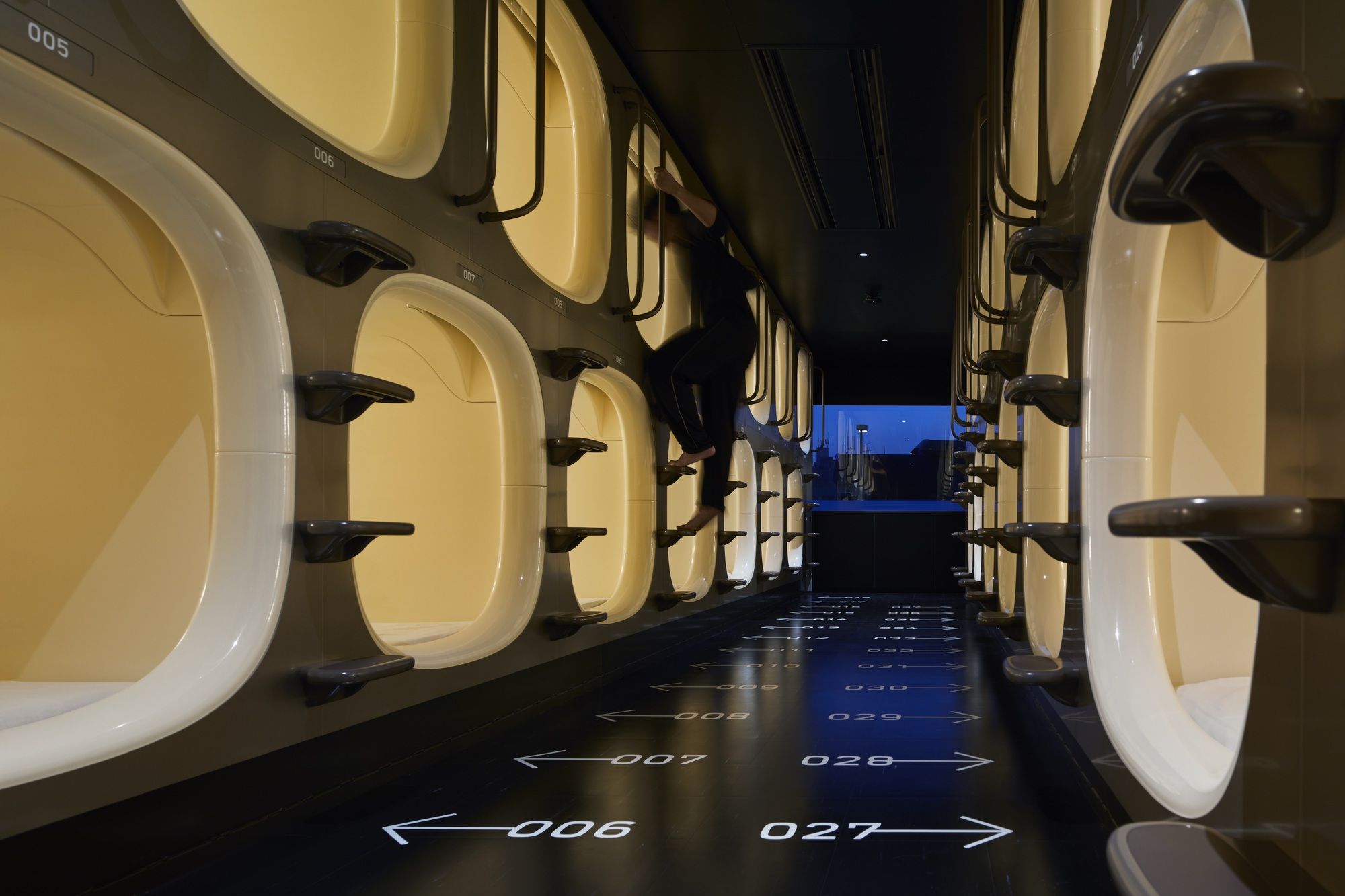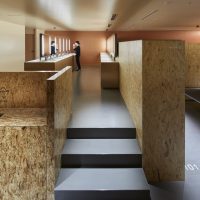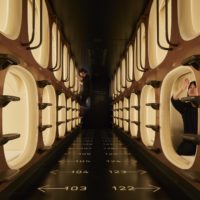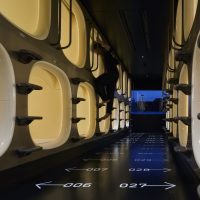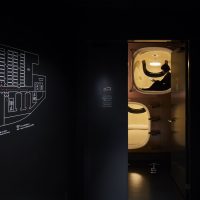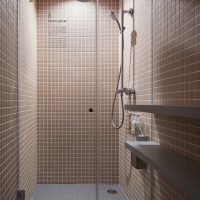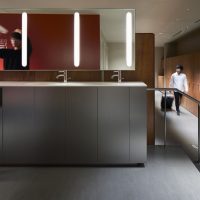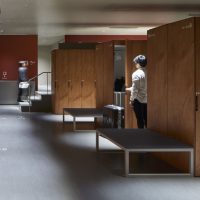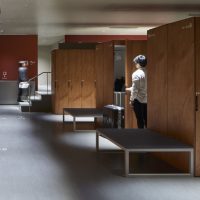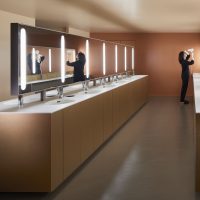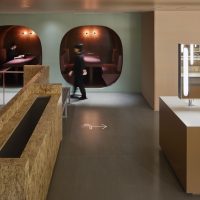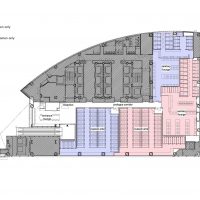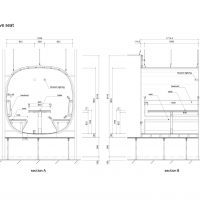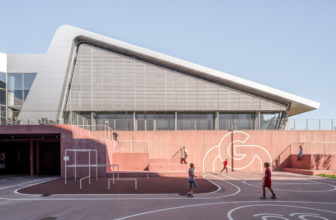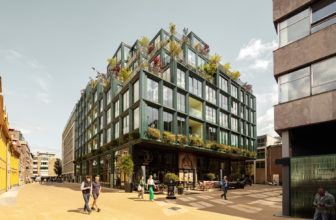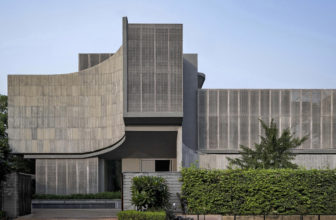You have most certainly heard of capsule hotels and especially if you have ever planned on visiting Japan. The country which is known for all sorts of ‘futuristic’ innovations, offers this kind of accommodation to its visitors and citizens alike. You may find some of the Japanese eccentric innovations unexplainable, but Capsule Hotels, certainly, are.
Well, let’s start with the fact that Japan is a quite populous country, no. 11 in the world ranking. On the other hand, it is not exactly the largest. The Far East country is by all means densely populated, and what does that affect? Well, pretty much everything but housing comes on top of the issues. Around the 60s, Japanese architects sensed the possibility of a future housing crisis, because of the rising population, and started developing the most extraordinary ideas to face the problem.
[irp posts=’241117′]One famous trend that developed at the time was ‘Metabolism.’ Do you know the Nagakin Capsule Tower in Tokyo? Well, that is metabolism in a nutshell. The tower was designed by the founder of the movement himself, Kisho Kurokawa, in 1972. It is a mixed-use residential and office tower, comprised of two concrete towers and, of course, the capsules. The prefabricated capsules made it possible for the residential apartments and the entire building to grow incrementally, according to need, with a minimal footprint.
The flashback episode is over, and now you know how the whole ‘Capsule’ thing started. So, ready to know more about those unconventional hotels that look like something out of a Sci-Fi movie? Let’s get started.
1. The very first Capsule Hotel opened in Osaka in 1979, and it was designed by non-other than Kisho Kurokawa. The Osaka Capsule Inn is still active and is, actually, considered one of the best capsule hotels in Japan.
2. Instead of rooms on both sides of the corridor, bed-sized capsules are stacked on top of each other, side by side, in Capsule Hotels.
3. The capsule’s dimensions are usually 1.2m wide, 2m long, and 1m high. So, they are not exactly suitable for standing or squatting.
4. The Capsule may have, besides the bed, a hanging TV, suitable to watch in a sleeping position, Wi-Fi, mirrors, small drawers, and alarm clocks.
5. Capsules, mostly, have no lockers attached. Individual lockers for guests to keep their stuff are usually placed in a separate zone, and they are not that roomy.
Do capsule hotels have showers?
6. You have probably seen this coming. Yes, there are no private bathrooms, only the communal shower room. There are some Capsule Hotels which provide sauna, as well.
7. Guests need to leave their shoes in the allocated lockers and move around in the hotel slippers. Of course, you are familiar with the Japanese custom of removing your shoes at the door. They do it at schools too.
How much do capsule hotels cost per night?
8. They are much cheaper than hotels, with a night stay ranging between 2000 to 4000 yen ($17-$35). So, they can be a good alternative to hostels, given you are not claustrophobic.
9. Some are offering now a bit more spacious capsules, like the First Cabin in Nanba, Osaka. The extra space comes from the elimination of the upper row of capsules, giving each capsule double the standard height. They, also, have inside-lockers, so the width is slightly increased. However, the advantages come at an extra price.
[irp posts=’86111′]10. Capsule hotels, originally, targeted out-of-town businessmen who are in need of a one-night stay or who have missed the last train for the day. However, some hotels, now, are offering accommodation for females too, in separate floors assigned for them.
11. They are not, exactly, the best when it comes to privacy. The side-by-side stacking makes sounds coming from surrounding capsules quite audible, which can be very noisy. The inside of the capsule is sealed from the view of outsiders via a curtain behind the transparent glass door.
What is the meaning of Pod Hotel?
12. Capsule Hotels are not only in Japan. Japan may have introduced Capsule hotels and, probably, has the most capsule hotels, but lately, those practical and space-efficient hotels have been spreading all over the globe, in Hong Kong, London, Moscow, Amsterdam, and many others. They might go under the name ‘Pod Hotels,’ and they can be slightly different from the Japanese standards.
- photography by © Nacása & Partners
- photography by © Nacása & Partners
- photography by © Nacása & Partners
- photography by © Nacása & Partners
- photography by © Nacása & Partners
- photography by © Nacása & Partners
- photography by © Nacása & Partners
- photography by © Nacása & Partners
- photography by © Nacása & Partners
- photography by © Nacása & Partners
- photography by © Nacása & Partners
- photography by © Nacása & Partners
- photography by © Nacása & Partners
- photography by © Nacása & Partners
- photography by © Nacása & Partners
- plan
- Section


